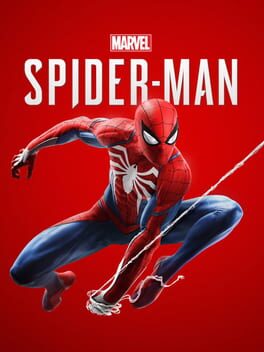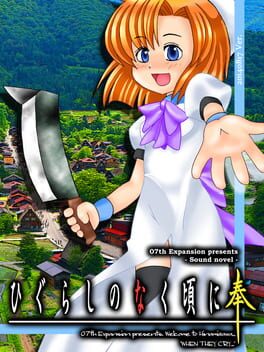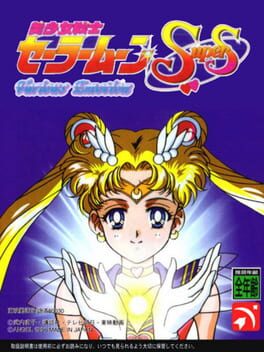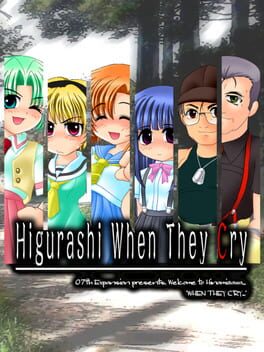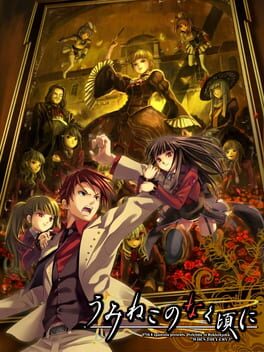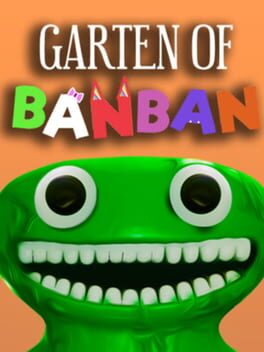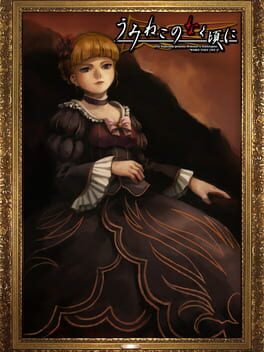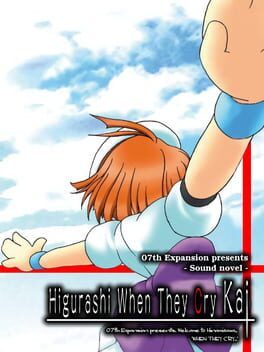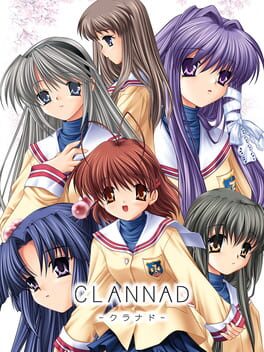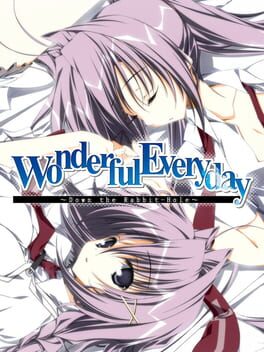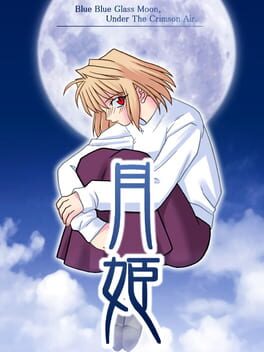l0singmyedge
17 reviews liked by l0singmyedge
Marvel's Spider-Man
2018
Throughout the history of video games, those that have focused on western comic book superheroes have not been particularly good. I'm framing this as a (purposefully) broad and easily-expandable idea; Some have terrible stories, some have terrible gameplay, or a mix of both. The first game that I ever played that didn't follow this predictable format was Batman: Arkham Asylum. Ten year old me at the time knew nothing about video games, but I knew that this game was a lot different from how Superman: Shadow of Apokolips felt.
It's easy to blame studios like THQ, Activision, hell, even LJN (if we're going way back) for all of the seemingly low effort superhero games that were made revolving around the superheroes that we grew up idolizing. These were essentially cash-grabs for the companies at play- consumers are bound to buy a product if it has a recognizable character on it's packaging. Marvel and DC are guilty of this throughout it's nearly decade plus run of MCU films; Why sink in unnecessary amounts of effort when the launch of the product is bound to make money, regardless of it's quality?
Marvel's Spider-Man breaks this doom loop combo of bad writing and gameplay, and capitalizes on both of them. This game's story roped me in a hell of a lot more than I ever expected it to; I am already a fan of Spider-Man himself, but I've witnessed a shocking amount of people play this game who could give less of a shit about Spider-Man (or Marvel in general). This is how you get people invested into a character or story. When a company/studio shows us this potential that they could care if they wanted to, it makes it even more upsetting to see the shitty low-effort products that are inevitably released going forward. It seems that as long as Disney keeps their paws off of Marvel Game Studios, we might be able to have a period of time where superhero games are not only good, but great.
I'm stoked to play Miles Morales and Spider-Man 2 this year. I knew I was going to play them eventually, but finally playing this game made me realize what this hype around these games actually were. I get it now!
Edit: within the next few days I'm going to write more about this game's story, and talk about it in this review
It's easy to blame studios like THQ, Activision, hell, even LJN (if we're going way back) for all of the seemingly low effort superhero games that were made revolving around the superheroes that we grew up idolizing. These were essentially cash-grabs for the companies at play- consumers are bound to buy a product if it has a recognizable character on it's packaging. Marvel and DC are guilty of this throughout it's nearly decade plus run of MCU films; Why sink in unnecessary amounts of effort when the launch of the product is bound to make money, regardless of it's quality?
Marvel's Spider-Man breaks this doom loop combo of bad writing and gameplay, and capitalizes on both of them. This game's story roped me in a hell of a lot more than I ever expected it to; I am already a fan of Spider-Man himself, but I've witnessed a shocking amount of people play this game who could give less of a shit about Spider-Man (or Marvel in general). This is how you get people invested into a character or story. When a company/studio shows us this potential that they could care if they wanted to, it makes it even more upsetting to see the shitty low-effort products that are inevitably released going forward. It seems that as long as Disney keeps their paws off of Marvel Game Studios, we might be able to have a period of time where superhero games are not only good, but great.
I'm stoked to play Miles Morales and Spider-Man 2 this year. I knew I was going to play them eventually, but finally playing this game made me realize what this hype around these games actually were. I get it now!
Edit: within the next few days I'm going to write more about this game's story, and talk about it in this review
This review contains spoilers
“..This is a miracle. You noticed the sin you committed in another world. That’s impossible to do. But you did it. That is the most unbelievable and precious of miracles that could exist in this world…” - Rika Furude
At one point I had absolutely zero interest in visual novels. A few years ago I didn't even know what a visual novel was. I was honestly not very interested in anime or manga, but those things have changed now. I was initially turned off by stereotypical anime fans in America, which I don't really think I need to elaborate on.
A few friends of mine in a close-knit community - who I can now comfortably call the best friends that I have ever had - sort of warmed me up to aforementioned mediums knowing that I did not have much background in them, initially. None of it was forced; I'd like to think I'm quite open-minded so I figured, oh why the hell not. Let me just play a 150 hour visual novel and see what I think of it.
To keep it short, this game has changed my perspective on everything that surrounds me. At this point I’ve already jumped into Ryukishi’s next piece of work, Umineko: When They Cry.
Before I start pouring my heart into this thing, I’d ask you to give my dear friend カケラSKY’s review on Higurashi: When They Cry, which you can read here.
This is also the same person who helped me finish this game - I cannot thank them enough.
Ryukishi07 is a writer. He is the writer. He is the most prolific yet efficient writer that I have ever had the pleasure of reading. There are plenty of authors out there who manage to create these expansive worlds of lore and beautiful imagery, but Ryukishi07 is different. He is someone that can operate on a level of efficiency that is dare I say unmatchable. The toolset that he brings to the keyboard is one that I find a lot of writers lack, but yet it seems so obvious to do.
Ryukishi07 writes his characters with love.
There are a lot of characters within fictional mediums that more or less feel like a chore to believe in. Emotional appeal within writing is something that can be very hit or miss, and oftentimes more than not ruin a story for me. This is a problem that I find to be true in almost every video game I play. If you look at my top games, you’ll notice that aside from Higurashi, the only narrative that has much of an emotional core is Final Fantasy VII. (You could argue about Fallout: New Vegas being emotional at parts, but it isn’t something that’s necessary in order to play or finish the game). Higurashi’s cast feels effortless as far as emotional appeal goes. To remind you, I straight up don’t like most anime. I find the writing abysmal and I can’t find emotional ground in any of the characters that surround me. It’s exhausting, and I’ll be the first to admit that it’s a problem for me rather than the medium itself. Maybe it’s just a problem with writing adult characters. Adults are confusing on an emotional level. I witness it everyday within my own life, and I see it in many others too. Children for the most part I feel are pretty straightforward in their emotions. They often say things as they see it, without taking other’s feelings into account. Which makes sense, they’re not self-aware yet at their age and not the best at realizing how what they say may impact others on an emotional level.
What I find interesting about Ryukishi07 is that this concept is flipped around entirely. The children of Hinamizawa are at an age where they’re able to communicate properly, realize their emotions, and solve problems together. This does not, however, exist in a vacuum. There was a cost that was made to be able for these children to get to this point.
Furthering through the questions arc of Higurashi: When They Cry, we see the trauma and internal emotions of these characters on an individual level. Speaking from experience here, trauma is a blessing and a curse. The curse is of course the trauma that you are dealt. Trauma is not an ideal scenario to have in your life. Trauma is, however, a learning experience. There are certain instances of trauma that put you in a position that you need to grow up faster than others. I remember being in this spot when my mother died. I was 12 years old, all of my friends around me were still kids, and I felt like I was trying to advance my life much faster than them, while simultaneously trying to hold onto my childhood without completely saying goodbye to it. I had a long road ahead of me, but for the sake of trauma, I had to develop my emotions a lot faster and further than most other people around my age at the time, and so I just had to deal with it. I don’t think that this is talked about nearly enough when pieces of art deal with the subject of trauma, and I don’t think it’s recognized nearly enough in the mental health community, professionally. Ryukishi understands this without actually ever directly saying this. Despite their trauma all being relatively different, it speaks to the group en masse and even alongside you, watching these events unfold. Keiichi Maebara, Mion Sonozaki, Shion Sonozaki, Satoko Houjou, and Rena Ryuugu, are all introspectively deep thinking characters that have their certain positions and personality traits all because of what insofar has happened to them throughout their lives. These are incredibly, incredibly smart children who throughout the game begin to better understand one another, and our understanding of what they went through becomes more clear when the topic of their trauma is brought together. I see a younger version of myself in a lot of these characters. Rika Furude, the mascot of Hinamizawa, is a perfect example. She’s technically younger than most of her peers, but on an emotional level she is tenfold of what the rest of the friend group is. This isn’t to discount the other friends, by the way. Rika Furude is just…an interesting character. I’ll get back to this momentarily.
It’s not worth going into the specifics of the individual traumas, although in relation to understanding the game and ‘solving’ Higurashi: When They Cry it is crucial to understanding the game.
The biggest part of this game that I found fascinating was what Ryukishi writes in a writers room at the end of chapter 4 or so. Maybe it isn’t Chapter 4, I could be misremembering, but regardless of this, Chapter 4 was the part of the game (aside from the opening of Chapter 2 where nobody remembers each other, and the cycles of Hinamizawa repeat themselves) where I realized I was in for much bigger of an experience than one would have originally anticipated. Anyways, Ryukishi at one point mentions the discourse among people that question whether Higurashi is a video game or not. The semantics here aren’t relevant to what the experience of Higurashi was. Call the When They Cry series whatever you want, it’s so far a brilliant piece of art that has had way bigger of an impact on my life than I ever expected.
Speaking of chapter 4, it doesn’t seem like most Higurashi fans enjoy this one as much as the other chapters in the questions arc. I think it is one of the top three chapters for me. Keep in mind we’re dealing with Ryukishi, even chapters that I found less interesting than others (e.g, Chapter 2 and Chapter 5) were still great experiences and serve as very important pieces when looking at Higurashi: When They Cry as a whole. Chapter 4 in particular is the shortest in the questions arc. The first three chapters deal with the trauma and experiences of, respectively: Keiichi Maebara/Rena Ryuugu, Mion/Shion Sonozaki, and Satoko Houjou. You’ll notice that one character is missing here, and I’ve also (intentionally) failed to mention them. The mascot of Hinamizawa, Rika Furude.
When I wrapped up the questions arc, I knew that Rika Furude was special. There was something much bigger and expansive as far as her character depth goes when compared to the other children in the friend group. I recall having a lengthy conversation with my dear friend, カケラSKY, about the conundrum of Rika’s character. Keep in mind that カケラSKY has played this game long before me, so they served as my witch for most of this experience. As we conversed, I came to the conclusion that Rika Furude is the way she is for an absolutely fascinating reason. She is a bystander. She takes the position of any one who simply reads a book, watches a movie or television show, or listens to a piece of music. She does not directly change the course of what is to happen to her friends in Hinamizawa, and she recognizes this. She is aware of the events that will happen in June 1983, and so are we, the readers. She has lived through these cycles of abuse and trauma, and remembers those experiences, just as we do too, the reader, after reading the first three chapters of the questions arc. How do we, as the reader/bystander, relate to Rika Furude? What exactly is Rika Furude? I did a lot of thinking about Rika as a character, and what her place was inside the story of Higurashi: When They Cry. A lot of this was overthinking, too, but when approaching a piece of media through love and well intentions it’s quite easy to figure out. Rika Furude is the embodiment of the viewer. Like us, she is the one who watches these events unfold, doing nothing with this knowledge, until this realization is made and action is taken to help save her friends, as well as herself, from ever dying or being murdered. Rika Furude is a bystander, watching her friends (and herself) be murdered.
At some point, sooner rather than later, we realize that we are ultimately hopeless in helping our friends in Hinamizawa. We feel despair and upset feelings watching these helpless children go through their lives, dealing with cycles of abuse and experiencing life changing trauma that puts an impact on their relationships with others, as well as internally. Given that the format of the story being told is a visual novel without routes or choices to be made, there is nothing to be done. Ryukishi recognizes this and talks about it fairly deep into the answers arc. It’s an idea that’s sort of thrown back at the viewer, though, and I don’t think offense should be taken from it. The gist of Ryukishi’s in a TIPS module asks that if we were to be able to make choices in the story of Higurashi, how much would they actually matter? We are given the choice to pick between two different boxes. Humans as a species are inherently selfish. We think that we know how to do something, and ultimately, we fail. This is not something that is the fault of the viewer. This is the world at large and a part of the media that we consume on a daily basis. If you are given a set of characters inside of a fictional world, how are we to trust that they are going to make the best decision? This question should be viewed from another perspective. Let’s spin the chessboard, if you will…
One box has a piece of caramel in it, while the other has a piece of chewing gum. They are two different outcomes, but the point of Schrodinger's cat is present here. What if one box provided you the key to solving Higurashi: When They Cry? We don’t know until that box is opened. We don’t know until we see both outcomes what the best option truly is. Even when both options are presented, what someone considers the “best” outcome of the game is entirely subjective. There is no right or wrong in the world of fiction, so what is the point of offering choices when a desired outcome is already set in stone? This leads to an interesting question regarding a point Ryukishi makes in a later part of the answers arc. He brings up the point that this game, unlike other popular VNs at the time, lacks different routes or options to see how the story progresses. How can you be sure that you will make the best decision, if choices/routes were present in Higurashi: When They Cry?
You can’t be. It’s a heartbreaking realization, but it doesn’t have to be. I’ll get back to this in a second. Anyways, you’ll never be 100% positive that your actions, or choices, will bring the best guaranteed outcome. Even in our daily lives, we have to make choices and go for something, taking bets on what the outcome is going to be. The illusion of choice, in a piece of fiction, is that your outcome is guaranteed. Rather, choices are taking a chance that a preferred outcome is what you get out of said decision.
There is a good amount of criticism surrounding Matsuribayashi, in particular the fourth subchapter. For those that may not remember, that’s the chapter where Bernkastel sets up the fragments, and you are to view them in a particular order for you to progress through the game. As a piece of metafiction I think this works quite well. As the viewer gets closer to realizing that Rika Furude is an embodiment of the viewer, where we are just acting as bystanders, the miracle of Hinamizawa can not happen. The furthering of June 1983 is not possible without our efforts alongside the children of Hinamizawa. When the puzzle pieces are in their correct spots, the miracle can now happen. A miracle can not happen if 100% effort is not given by all parties, as we see throughout each of the answers chapters.
I found myself internalizing the messages of Higurashi: When They Cry rather naturally. I eventually found myself acting upon them without even thinking of it. I think that's really the beauty of impactful art. While some aspects of your life you may have to work on, others just come naturally. Humans are born as loving creatures. There is love and compassion in all of us that we are able to act upon.
Reach out to your friends. Love the people that surround you. Ask for help when needed. You can't do this all on your own, and that's a good thing. There are billions of us here for one reason or another.
At one point I had absolutely zero interest in visual novels. A few years ago I didn't even know what a visual novel was. I was honestly not very interested in anime or manga, but those things have changed now. I was initially turned off by stereotypical anime fans in America, which I don't really think I need to elaborate on.
A few friends of mine in a close-knit community - who I can now comfortably call the best friends that I have ever had - sort of warmed me up to aforementioned mediums knowing that I did not have much background in them, initially. None of it was forced; I'd like to think I'm quite open-minded so I figured, oh why the hell not. Let me just play a 150 hour visual novel and see what I think of it.
To keep it short, this game has changed my perspective on everything that surrounds me. At this point I’ve already jumped into Ryukishi’s next piece of work, Umineko: When They Cry.
Before I start pouring my heart into this thing, I’d ask you to give my dear friend カケラSKY’s review on Higurashi: When They Cry, which you can read here.
This is also the same person who helped me finish this game - I cannot thank them enough.
Ryukishi07 is a writer. He is the writer. He is the most prolific yet efficient writer that I have ever had the pleasure of reading. There are plenty of authors out there who manage to create these expansive worlds of lore and beautiful imagery, but Ryukishi07 is different. He is someone that can operate on a level of efficiency that is dare I say unmatchable. The toolset that he brings to the keyboard is one that I find a lot of writers lack, but yet it seems so obvious to do.
Ryukishi07 writes his characters with love.
There are a lot of characters within fictional mediums that more or less feel like a chore to believe in. Emotional appeal within writing is something that can be very hit or miss, and oftentimes more than not ruin a story for me. This is a problem that I find to be true in almost every video game I play. If you look at my top games, you’ll notice that aside from Higurashi, the only narrative that has much of an emotional core is Final Fantasy VII. (You could argue about Fallout: New Vegas being emotional at parts, but it isn’t something that’s necessary in order to play or finish the game). Higurashi’s cast feels effortless as far as emotional appeal goes. To remind you, I straight up don’t like most anime. I find the writing abysmal and I can’t find emotional ground in any of the characters that surround me. It’s exhausting, and I’ll be the first to admit that it’s a problem for me rather than the medium itself. Maybe it’s just a problem with writing adult characters. Adults are confusing on an emotional level. I witness it everyday within my own life, and I see it in many others too. Children for the most part I feel are pretty straightforward in their emotions. They often say things as they see it, without taking other’s feelings into account. Which makes sense, they’re not self-aware yet at their age and not the best at realizing how what they say may impact others on an emotional level.
What I find interesting about Ryukishi07 is that this concept is flipped around entirely. The children of Hinamizawa are at an age where they’re able to communicate properly, realize their emotions, and solve problems together. This does not, however, exist in a vacuum. There was a cost that was made to be able for these children to get to this point.
Furthering through the questions arc of Higurashi: When They Cry, we see the trauma and internal emotions of these characters on an individual level. Speaking from experience here, trauma is a blessing and a curse. The curse is of course the trauma that you are dealt. Trauma is not an ideal scenario to have in your life. Trauma is, however, a learning experience. There are certain instances of trauma that put you in a position that you need to grow up faster than others. I remember being in this spot when my mother died. I was 12 years old, all of my friends around me were still kids, and I felt like I was trying to advance my life much faster than them, while simultaneously trying to hold onto my childhood without completely saying goodbye to it. I had a long road ahead of me, but for the sake of trauma, I had to develop my emotions a lot faster and further than most other people around my age at the time, and so I just had to deal with it. I don’t think that this is talked about nearly enough when pieces of art deal with the subject of trauma, and I don’t think it’s recognized nearly enough in the mental health community, professionally. Ryukishi understands this without actually ever directly saying this. Despite their trauma all being relatively different, it speaks to the group en masse and even alongside you, watching these events unfold. Keiichi Maebara, Mion Sonozaki, Shion Sonozaki, Satoko Houjou, and Rena Ryuugu, are all introspectively deep thinking characters that have their certain positions and personality traits all because of what insofar has happened to them throughout their lives. These are incredibly, incredibly smart children who throughout the game begin to better understand one another, and our understanding of what they went through becomes more clear when the topic of their trauma is brought together. I see a younger version of myself in a lot of these characters. Rika Furude, the mascot of Hinamizawa, is a perfect example. She’s technically younger than most of her peers, but on an emotional level she is tenfold of what the rest of the friend group is. This isn’t to discount the other friends, by the way. Rika Furude is just…an interesting character. I’ll get back to this momentarily.
It’s not worth going into the specifics of the individual traumas, although in relation to understanding the game and ‘solving’ Higurashi: When They Cry it is crucial to understanding the game.
The biggest part of this game that I found fascinating was what Ryukishi writes in a writers room at the end of chapter 4 or so. Maybe it isn’t Chapter 4, I could be misremembering, but regardless of this, Chapter 4 was the part of the game (aside from the opening of Chapter 2 where nobody remembers each other, and the cycles of Hinamizawa repeat themselves) where I realized I was in for much bigger of an experience than one would have originally anticipated. Anyways, Ryukishi at one point mentions the discourse among people that question whether Higurashi is a video game or not. The semantics here aren’t relevant to what the experience of Higurashi was. Call the When They Cry series whatever you want, it’s so far a brilliant piece of art that has had way bigger of an impact on my life than I ever expected.
Speaking of chapter 4, it doesn’t seem like most Higurashi fans enjoy this one as much as the other chapters in the questions arc. I think it is one of the top three chapters for me. Keep in mind we’re dealing with Ryukishi, even chapters that I found less interesting than others (e.g, Chapter 2 and Chapter 5) were still great experiences and serve as very important pieces when looking at Higurashi: When They Cry as a whole. Chapter 4 in particular is the shortest in the questions arc. The first three chapters deal with the trauma and experiences of, respectively: Keiichi Maebara/Rena Ryuugu, Mion/Shion Sonozaki, and Satoko Houjou. You’ll notice that one character is missing here, and I’ve also (intentionally) failed to mention them. The mascot of Hinamizawa, Rika Furude.
When I wrapped up the questions arc, I knew that Rika Furude was special. There was something much bigger and expansive as far as her character depth goes when compared to the other children in the friend group. I recall having a lengthy conversation with my dear friend, カケラSKY, about the conundrum of Rika’s character. Keep in mind that カケラSKY has played this game long before me, so they served as my witch for most of this experience. As we conversed, I came to the conclusion that Rika Furude is the way she is for an absolutely fascinating reason. She is a bystander. She takes the position of any one who simply reads a book, watches a movie or television show, or listens to a piece of music. She does not directly change the course of what is to happen to her friends in Hinamizawa, and she recognizes this. She is aware of the events that will happen in June 1983, and so are we, the readers. She has lived through these cycles of abuse and trauma, and remembers those experiences, just as we do too, the reader, after reading the first three chapters of the questions arc. How do we, as the reader/bystander, relate to Rika Furude? What exactly is Rika Furude? I did a lot of thinking about Rika as a character, and what her place was inside the story of Higurashi: When They Cry. A lot of this was overthinking, too, but when approaching a piece of media through love and well intentions it’s quite easy to figure out. Rika Furude is the embodiment of the viewer. Like us, she is the one who watches these events unfold, doing nothing with this knowledge, until this realization is made and action is taken to help save her friends, as well as herself, from ever dying or being murdered. Rika Furude is a bystander, watching her friends (and herself) be murdered.
At some point, sooner rather than later, we realize that we are ultimately hopeless in helping our friends in Hinamizawa. We feel despair and upset feelings watching these helpless children go through their lives, dealing with cycles of abuse and experiencing life changing trauma that puts an impact on their relationships with others, as well as internally. Given that the format of the story being told is a visual novel without routes or choices to be made, there is nothing to be done. Ryukishi recognizes this and talks about it fairly deep into the answers arc. It’s an idea that’s sort of thrown back at the viewer, though, and I don’t think offense should be taken from it. The gist of Ryukishi’s in a TIPS module asks that if we were to be able to make choices in the story of Higurashi, how much would they actually matter? We are given the choice to pick between two different boxes. Humans as a species are inherently selfish. We think that we know how to do something, and ultimately, we fail. This is not something that is the fault of the viewer. This is the world at large and a part of the media that we consume on a daily basis. If you are given a set of characters inside of a fictional world, how are we to trust that they are going to make the best decision? This question should be viewed from another perspective. Let’s spin the chessboard, if you will…
One box has a piece of caramel in it, while the other has a piece of chewing gum. They are two different outcomes, but the point of Schrodinger's cat is present here. What if one box provided you the key to solving Higurashi: When They Cry? We don’t know until that box is opened. We don’t know until we see both outcomes what the best option truly is. Even when both options are presented, what someone considers the “best” outcome of the game is entirely subjective. There is no right or wrong in the world of fiction, so what is the point of offering choices when a desired outcome is already set in stone? This leads to an interesting question regarding a point Ryukishi makes in a later part of the answers arc. He brings up the point that this game, unlike other popular VNs at the time, lacks different routes or options to see how the story progresses. How can you be sure that you will make the best decision, if choices/routes were present in Higurashi: When They Cry?
You can’t be. It’s a heartbreaking realization, but it doesn’t have to be. I’ll get back to this in a second. Anyways, you’ll never be 100% positive that your actions, or choices, will bring the best guaranteed outcome. Even in our daily lives, we have to make choices and go for something, taking bets on what the outcome is going to be. The illusion of choice, in a piece of fiction, is that your outcome is guaranteed. Rather, choices are taking a chance that a preferred outcome is what you get out of said decision.
There is a good amount of criticism surrounding Matsuribayashi, in particular the fourth subchapter. For those that may not remember, that’s the chapter where Bernkastel sets up the fragments, and you are to view them in a particular order for you to progress through the game. As a piece of metafiction I think this works quite well. As the viewer gets closer to realizing that Rika Furude is an embodiment of the viewer, where we are just acting as bystanders, the miracle of Hinamizawa can not happen. The furthering of June 1983 is not possible without our efforts alongside the children of Hinamizawa. When the puzzle pieces are in their correct spots, the miracle can now happen. A miracle can not happen if 100% effort is not given by all parties, as we see throughout each of the answers chapters.
I found myself internalizing the messages of Higurashi: When They Cry rather naturally. I eventually found myself acting upon them without even thinking of it. I think that's really the beauty of impactful art. While some aspects of your life you may have to work on, others just come naturally. Humans are born as loving creatures. There is love and compassion in all of us that we are able to act upon.
Reach out to your friends. Love the people that surround you. Ask for help when needed. You can't do this all on your own, and that's a good thing. There are billions of us here for one reason or another.
SuperS, all things considered, is a great season of the show. My third favorite so far? Unfortunately though, at this point of the series, the amount of season specific Sailor Moon tie in games began to dwindle. This left me with either the second edition of the SNES fighting game, this game, or... games for the Playdia. That I can't even read. I've sampled this game in the past, originally downloading it thinking it was some expansion to the SNES game. And. Good lord. Was I in for a shock.
This is, undoubtedly, one of the ugliest games I've seen in my life. Most games I've played or seen have at least one redeeming aspect to their presentation, even bad looking ones, but this is an exception. Terrible spritework overlays low quality backgrounds that look like Sailor Moon™ kids playmats with some of the lengthiest windup times for special moves you'll ever see. The opening FMV is amazingly horrifying as well, It has to be SEEN to believed. Not a single aspect of this game's presentation is worth praising, it truly is that ugly.
But, okay, graphics aren't everything, sure. So that just leaves the gameplay to be the redeeming aspect, right? RIGHT? Unfortunately, nothing that made the SNES game appealing carries over here. The SNES game was responsive and feels very good to control. This game... does not!!! I've played plenty of fighting games with awkward controls, believe me, but this one takes the cake. Really nothing feels responsive or good to pull off here, the hitboxes are wack, and the broken moves in the SNES game now become unfunny because of how damn slow the game is. Not only are the load times terrible, but the actual game speed itself is significantly slower than its predecessor. I legit can't think of a single nice thing to say about the gameplay here, it's really that bad.
Things I did like:
- Uranus has a cool moveset here
- The character endings made me laugh because of the shitty "congratulation" pop up immediately followed up by the end credits
- The box art with the 3d render of Sailor Moon makes Silent Hill look like fuckin child's play
In short- don't play this. The SNES fighting game is an absolute masterpiece among kusoges, while also being a stupid fun game in it's own right, play that instead. If you are that intrigued about this disaster of a fighting game, go ahead, but just know I warned you.
this ending cutscene /10
This is, undoubtedly, one of the ugliest games I've seen in my life. Most games I've played or seen have at least one redeeming aspect to their presentation, even bad looking ones, but this is an exception. Terrible spritework overlays low quality backgrounds that look like Sailor Moon™ kids playmats with some of the lengthiest windup times for special moves you'll ever see. The opening FMV is amazingly horrifying as well, It has to be SEEN to believed. Not a single aspect of this game's presentation is worth praising, it truly is that ugly.
But, okay, graphics aren't everything, sure. So that just leaves the gameplay to be the redeeming aspect, right? RIGHT? Unfortunately, nothing that made the SNES game appealing carries over here. The SNES game was responsive and feels very good to control. This game... does not!!! I've played plenty of fighting games with awkward controls, believe me, but this one takes the cake. Really nothing feels responsive or good to pull off here, the hitboxes are wack, and the broken moves in the SNES game now become unfunny because of how damn slow the game is. Not only are the load times terrible, but the actual game speed itself is significantly slower than its predecessor. I legit can't think of a single nice thing to say about the gameplay here, it's really that bad.
Things I did like:
- Uranus has a cool moveset here
- The character endings made me laugh because of the shitty "congratulation" pop up immediately followed up by the end credits
- The box art with the 3d render of Sailor Moon makes Silent Hill look like fuckin child's play
In short- don't play this. The SNES fighting game is an absolute masterpiece among kusoges, while also being a stupid fun game in it's own right, play that instead. If you are that intrigued about this disaster of a fighting game, go ahead, but just know I warned you.
this ending cutscene /10
This review contains spoilers
It's not just a horror visual novel where they all suffer.
Higurashi has some of the best, most dread inducing horror scenes I've ever seen in any horror media- visual novel or no. Ryukishi07 uses the storytelling of unreliable narrators as an avenue to make his audience understand the full force of the mental distress the characters are experiencing. Without us recognizing it, we're sympathizing with Keiichi while he murders his friends. We're sympathizing with Shion while she kills her grandmother. We're sympathizing with Rena while she's killing two people. Higurashi, ultimately, is a story of understanding. Higurashi devotes itself to the simple lesson "when you're going through something and having extreme thoughts, talk to someone about it" and operates with it on such a complex, relatable, and emotional level. It subverts it's horror elements and, despite the grizzly experiences the characters go through, pursues a happy ending. I couldn't think of a better outcome for this story. To say "they made a miracle happen and got a happy ending" is such an optimistic and pleasantly childish way of describing a horror story- but it operates well with the series. Because they are children. Because there's nothing wrong with children finding happiness, no matter their background. Because children shouldn't have to fight tooth and nail to be happy. Because children should be allowed to have miracles.
Good fucking vn.
Higurashi has some of the best, most dread inducing horror scenes I've ever seen in any horror media- visual novel or no. Ryukishi07 uses the storytelling of unreliable narrators as an avenue to make his audience understand the full force of the mental distress the characters are experiencing. Without us recognizing it, we're sympathizing with Keiichi while he murders his friends. We're sympathizing with Shion while she kills her grandmother. We're sympathizing with Rena while she's killing two people. Higurashi, ultimately, is a story of understanding. Higurashi devotes itself to the simple lesson "when you're going through something and having extreme thoughts, talk to someone about it" and operates with it on such a complex, relatable, and emotional level. It subverts it's horror elements and, despite the grizzly experiences the characters go through, pursues a happy ending. I couldn't think of a better outcome for this story. To say "they made a miracle happen and got a happy ending" is such an optimistic and pleasantly childish way of describing a horror story- but it operates well with the series. Because they are children. Because there's nothing wrong with children finding happiness, no matter their background. Because children shouldn't have to fight tooth and nail to be happy. Because children should be allowed to have miracles.
Good fucking vn.
"Yes. Sometimes it's better to let people come to these conclusions themselves."
The best way to describe Disco Elysium is greatness. I'm not talking about certain aspects about it. Not the main parts or just the climax. Everything about it is carefully constructed and well-written. From the moment you get introduced to the main character, conflict, subplots and from the very last minute after you finish the game. There's a minute precision and care on every detail of the game, it's truly amazing. The mystery's well-thought out, the process is methodical and every angle is considered. Locations are memorable. B-b-but what if it sacrificed enjoyment for writing? Overdone joke but you just have to see it. The prose and dialogue are witty, humorous, wild, and organic. Every character have distinct personalities, motivations, and beliefs and contribute to the overall picture the narrative is going for. It's incredibly refreshing seeing how the characters interact and there are consequences with every choice you make even if you attempt to avoid them. What's at stake is believable. "Okay but you're just talking as if the game is objectively great and not coming from your own opinion." You know me, I prefer reading books, and visual novels now so this type of game works for me. There are 3 things I want from creators. First, I want them to be ambitious, I meant that I don't want to see them holding back. Go ahead make me uncomfortable and I'd prefer that instead of thinking what-ifs, and buts. I want them to commit in their vision in the way that they can only do. With countless other things out there and ideas recycled, there's still room for originality. Secondly, I want the story to be thought-provoking. It could be any topic but I want it to tackle grand ideas and down-to-earth ones. It wouldn't matter if you couldn't learn or reflect about anything from it that's relevant in your life. Lastly, it must make me emotional not that it's necessary. It'd be pointless if it's forced out of me but I want just a bit of everything. Joy, sadness, anger, catharsis, frustration, empathy, regret, etc. Such is life and how art is best experienced.
Well no surprise, they succeeded in every single category with ease. I already love stories these kinds of stories and glad that it still surpassed my expectations even with minor inconveniences and shortcomings. So go ahead and let yourself soaked with it's rich world and characters. Disco Elysium is a self-discovery journey awaiting you.
The best way to describe Disco Elysium is greatness. I'm not talking about certain aspects about it. Not the main parts or just the climax. Everything about it is carefully constructed and well-written. From the moment you get introduced to the main character, conflict, subplots and from the very last minute after you finish the game. There's a minute precision and care on every detail of the game, it's truly amazing. The mystery's well-thought out, the process is methodical and every angle is considered. Locations are memorable. B-b-but what if it sacrificed enjoyment for writing? Overdone joke but you just have to see it. The prose and dialogue are witty, humorous, wild, and organic. Every character have distinct personalities, motivations, and beliefs and contribute to the overall picture the narrative is going for. It's incredibly refreshing seeing how the characters interact and there are consequences with every choice you make even if you attempt to avoid them. What's at stake is believable. "Okay but you're just talking as if the game is objectively great and not coming from your own opinion." You know me, I prefer reading books, and visual novels now so this type of game works for me. There are 3 things I want from creators. First, I want them to be ambitious, I meant that I don't want to see them holding back. Go ahead make me uncomfortable and I'd prefer that instead of thinking what-ifs, and buts. I want them to commit in their vision in the way that they can only do. With countless other things out there and ideas recycled, there's still room for originality. Secondly, I want the story to be thought-provoking. It could be any topic but I want it to tackle grand ideas and down-to-earth ones. It wouldn't matter if you couldn't learn or reflect about anything from it that's relevant in your life. Lastly, it must make me emotional not that it's necessary. It'd be pointless if it's forced out of me but I want just a bit of everything. Joy, sadness, anger, catharsis, frustration, empathy, regret, etc. Such is life and how art is best experienced.
Well no surprise, they succeeded in every single category with ease. I already love stories these kinds of stories and glad that it still surpassed my expectations even with minor inconveniences and shortcomings. So go ahead and let yourself soaked with it's rich world and characters. Disco Elysium is a self-discovery journey awaiting you.
Metal Gear Solid 2 ends in a way that makes it difficult to continue the story onward past that point, leaving any future game only one way forward; Going backward. Thus, Metal Gear Solid 3 acts as the starting point for the whole series, despite being a sequel to Metal Gear Solid 2.
Metal Gear Solid 3 is set in the early 60s, and the gameplay reflects this. Gone are the soliton radar and the Codec, leaving the player to rely on somewhat inferior technology in comparison to what the player had access to in previous titles. Taking the place of the soliton radar, the player must use devices such as the anti-personnel sensor and the motion detector to be able to detect the position of the enemy soldiers. However, these items have their own battery life, and become useless when the player depletes it. Thus, these items can’t be overused, and must be allowed to recharge when their batteries are running low.
Guns have a similar issue too when it comes to suppressors. Previous games would let you use the one suppressor you find for the entire game, whereas the suppressors you find in Metal Gear Solid 3 wear down with use, thus forcing you to be more deliberate with which guard you shoot. This contrasts with Metal Gear Solid 2, where guns like the tranquilizer and M9 could be used in a liberal manner when equipped with the suppressor, almost negating any difficulty the game had. Suppressors are generally hard to find as well, making Metal Gear Solid 3 a more engaging experience.
Snake Eater’s main gameplay philosophy revolves around the idea of survival, and thus the player must utilize whatever is around them to do so. You won’t be able to find rations as easily as you could have done in the previous two titles, and thus you must resort to hunting and eating the local wildlife to restore health. Unlike the previous titles, eating food does not automatically restore health. Instead, it restores your stamina gauge, and with that full, your health should slowly regenerate on its own. The animals that you hunt down or capture can expire as well, meaning that one can’t just stockpile food the whole game. There are food items that last much longer in the game, such as the Calorie Mate item, instant noodles, and the Russian rations. These however, are also difficult to find in comparison to just hunting down the animals present, so there’s a balance there. There is an item present known as life medicine that does restore the health bar, but these are sparse throughout the game as well and are best left saving for boss fights.
Combat is expanded as well, with the addition of CQC. Rather than just punch or choke an enemy, Snake can throw enemies to the ground to instantly knock them out, interrogate them, or use their body as a shield against other enemies. There’s also the added addition of the cure menu, adding a further bit of complexity into combat. If Snake gets injured in some way, the player’s health will decrease until they go into the cure menu to fix whatever issue they have.
Through these, the gameplay of Snake Eater becomes that much more fleshed out in comparison to Sons of Liberty and Metal Gear Solid. There’s a level of strategy necessary here that wasn’t present in the gameplay of any of the previous titles, making it an incredibly engaging experience. This is doubly true for someone playing these games in order of release, as it challenges any previously held notions about how a Metal Gear game should play by forcing the player to be more careful with how they approach combat. It took some getting used to for me personally, but eventually Snake Eater had grown to have one of the series’ best styles of gameplay. Out of the first three Solid titles, Snake Eater easily has the most refined style of gameplay. The only thing I’d really think of that would improve Snake Eater’s gameplay would be the addition of crouch walking, as the open style of the map kind of necessitates it. Other than that, however, what is here is great.
I won’t say too much about the specifics of the story for those who want to go in blind, but I will say that I felt that it was a tad weak in comparison to the previous two titles, especially Sons of Liberty. That’s not to say that I don’t like the story or that I don’t think it’s great, as I do. Even despite what qualms I have with the story, it’s still easily one of my own personal favorite games out there, and likely one of the greatest to have ever come out. However, I do feel that Snake Eater was a bit ‘safe’ in comparison to Sons of Liberty, thus leading it to be the less interesting of the first three. I don’t blame it for being that way, and I personally believe that this was the most reasonable direction that they could have gone. I also feel as if Metal Gear Solid on the PS1 had more iconic highs overall, though that’s not to say that Snake Eater is a bad experience. Snake’s arc is fantastic here, and the characters are all extremely memorable. The music is fantastic. The world of Snake Eater feels lived in and alive in a way that other titles in the series don’t.
Metal Gear Solid 3 is an incredible experience and is very much worth playing. It’s not a terrible place to start due to it being a prequel, but I would recommend playing these titles in order of release regardless. Though one won’t be lost playing 3 first, it’s a much more rewarding and enjoyable experience having the first two solid games under your belt beforehand. Though it isn’t my favorite out of the first three Metal Gear Solid titles, Snake Eater is still easily one of my favorite games ever, and even despite it not surpassing Sons of Liberty in my eyes, still serves to be an amazing experience.
To summarize: Peak game. Would feed on a tree frog again.
Play this game.
Metal Gear Solid 3 is set in the early 60s, and the gameplay reflects this. Gone are the soliton radar and the Codec, leaving the player to rely on somewhat inferior technology in comparison to what the player had access to in previous titles. Taking the place of the soliton radar, the player must use devices such as the anti-personnel sensor and the motion detector to be able to detect the position of the enemy soldiers. However, these items have their own battery life, and become useless when the player depletes it. Thus, these items can’t be overused, and must be allowed to recharge when their batteries are running low.
Guns have a similar issue too when it comes to suppressors. Previous games would let you use the one suppressor you find for the entire game, whereas the suppressors you find in Metal Gear Solid 3 wear down with use, thus forcing you to be more deliberate with which guard you shoot. This contrasts with Metal Gear Solid 2, where guns like the tranquilizer and M9 could be used in a liberal manner when equipped with the suppressor, almost negating any difficulty the game had. Suppressors are generally hard to find as well, making Metal Gear Solid 3 a more engaging experience.
Snake Eater’s main gameplay philosophy revolves around the idea of survival, and thus the player must utilize whatever is around them to do so. You won’t be able to find rations as easily as you could have done in the previous two titles, and thus you must resort to hunting and eating the local wildlife to restore health. Unlike the previous titles, eating food does not automatically restore health. Instead, it restores your stamina gauge, and with that full, your health should slowly regenerate on its own. The animals that you hunt down or capture can expire as well, meaning that one can’t just stockpile food the whole game. There are food items that last much longer in the game, such as the Calorie Mate item, instant noodles, and the Russian rations. These however, are also difficult to find in comparison to just hunting down the animals present, so there’s a balance there. There is an item present known as life medicine that does restore the health bar, but these are sparse throughout the game as well and are best left saving for boss fights.
Combat is expanded as well, with the addition of CQC. Rather than just punch or choke an enemy, Snake can throw enemies to the ground to instantly knock them out, interrogate them, or use their body as a shield against other enemies. There’s also the added addition of the cure menu, adding a further bit of complexity into combat. If Snake gets injured in some way, the player’s health will decrease until they go into the cure menu to fix whatever issue they have.
Through these, the gameplay of Snake Eater becomes that much more fleshed out in comparison to Sons of Liberty and Metal Gear Solid. There’s a level of strategy necessary here that wasn’t present in the gameplay of any of the previous titles, making it an incredibly engaging experience. This is doubly true for someone playing these games in order of release, as it challenges any previously held notions about how a Metal Gear game should play by forcing the player to be more careful with how they approach combat. It took some getting used to for me personally, but eventually Snake Eater had grown to have one of the series’ best styles of gameplay. Out of the first three Solid titles, Snake Eater easily has the most refined style of gameplay. The only thing I’d really think of that would improve Snake Eater’s gameplay would be the addition of crouch walking, as the open style of the map kind of necessitates it. Other than that, however, what is here is great.
I won’t say too much about the specifics of the story for those who want to go in blind, but I will say that I felt that it was a tad weak in comparison to the previous two titles, especially Sons of Liberty. That’s not to say that I don’t like the story or that I don’t think it’s great, as I do. Even despite what qualms I have with the story, it’s still easily one of my own personal favorite games out there, and likely one of the greatest to have ever come out. However, I do feel that Snake Eater was a bit ‘safe’ in comparison to Sons of Liberty, thus leading it to be the less interesting of the first three. I don’t blame it for being that way, and I personally believe that this was the most reasonable direction that they could have gone. I also feel as if Metal Gear Solid on the PS1 had more iconic highs overall, though that’s not to say that Snake Eater is a bad experience. Snake’s arc is fantastic here, and the characters are all extremely memorable. The music is fantastic. The world of Snake Eater feels lived in and alive in a way that other titles in the series don’t.
Metal Gear Solid 3 is an incredible experience and is very much worth playing. It’s not a terrible place to start due to it being a prequel, but I would recommend playing these titles in order of release regardless. Though one won’t be lost playing 3 first, it’s a much more rewarding and enjoyable experience having the first two solid games under your belt beforehand. Though it isn’t my favorite out of the first three Metal Gear Solid titles, Snake Eater is still easily one of my favorite games ever, and even despite it not surpassing Sons of Liberty in my eyes, still serves to be an amazing experience.
To summarize: Peak game. Would feed on a tree frog again.
Play this game.
I don't know if I'm ever actually going to review either half of Umineko in here, so for the moment, just consider this at best a placeholder, at worst, just my personal check-point. It's been almost three months since my friends and I finished playing Umineko. Anyone who's read my pieces on Higurashi knows what that game was to me. Umineko sits at the top of it all for me. It's just at the top of everything I've spent my 20-odd years experiencing, the culmination of so much personal journeying, growing and experiencing. I sincerely doubt anything will knock it from its pillar anytime in any near future. What this means to me on an intimate level is something that ultimately right now belongs to my friends and I intimately. I don't know if and when I'll be comfortable sharing beyond that. That is our small world which we inhabit together. Some cat boxes are best left alone, and I think any of you would understand and respect that.
If anything, I want to really extend a lot of gratitude to Ryukishi07, to 07th Expansion and Witch Hunt, especially to the late BT, whose death and more importantly his lifelong friendship with Ryukishi clearly affected how the game evolved into what it became, to the voice cast, and to my friends for all of this. Genuinely a reason to live some days. A reason to create and imagine, every single day.
愛がなければ視えない。
If anything, I want to really extend a lot of gratitude to Ryukishi07, to 07th Expansion and Witch Hunt, especially to the late BT, whose death and more importantly his lifelong friendship with Ryukishi clearly affected how the game evolved into what it became, to the voice cast, and to my friends for all of this. Genuinely a reason to live some days. A reason to create and imagine, every single day.
愛がなければ視えない。
Garten of Banban
2023
Garten of Banban
2023
the first few hours of alttp's design are nothing short of magic. the game tosses so many new items and concepts of traversal and exploration at the player and allows them to lab those ideas and figure out how they can apply these new concepts without holding their hand through it - and looking at the game from a birds eye view, this is emblematic of the entire experience. that is to say, alttp structures itself around linearity while also nudging the player in new directions enough while they take that main path that they'll find sidequests and off-the-trail objectives on their own if they're paying attention. i think more often than it doesn't the game strikes a wonderful balance with this - and most of the time it's pretty fair in what it expects from you.
presentation is both timeless and beneficially superior for gameplay now. walls are clearly designated when bombable, for instance. holes that can and should be jumped down - considering alttp's love of multi-level dungeons are typically clear in pointing that out. and even from an aesthetical standpoint, alttp shines with gorgeous sprite art and one of the series' best scores.
that said, i think the game often gets ahead of itself with lodging tons of unfun, gratuitous combat in areas where it actively detriments the experience. some dungeons are SERIOUSLY built better than others, with the skull woods and ice palace landing close to the "pretty bad" side of the scale. boss battles typically range from alright to obnoxious. but still, alttp remains a reliable and solid foundation for what the series would do moving forward and a pretty great starting point for those interested in the 2d roots of the franchise.
presentation is both timeless and beneficially superior for gameplay now. walls are clearly designated when bombable, for instance. holes that can and should be jumped down - considering alttp's love of multi-level dungeons are typically clear in pointing that out. and even from an aesthetical standpoint, alttp shines with gorgeous sprite art and one of the series' best scores.
that said, i think the game often gets ahead of itself with lodging tons of unfun, gratuitous combat in areas where it actively detriments the experience. some dungeons are SERIOUSLY built better than others, with the skull woods and ice palace landing close to the "pretty bad" side of the scale. boss battles typically range from alright to obnoxious. but still, alttp remains a reliable and solid foundation for what the series would do moving forward and a pretty great starting point for those interested in the 2d roots of the franchise.
